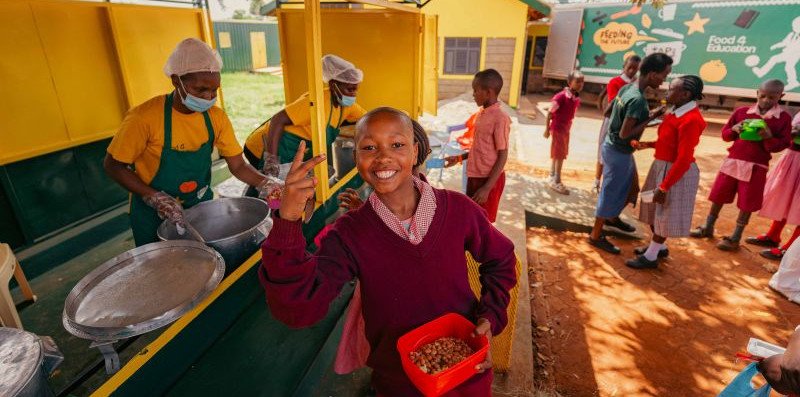As Africa commemorates the Day of the African Child under the African Union’s 2025 theme, “Planning and budgeting for children’s rights: progress since 2010,” Food4Education is urging African governments and global partners to prioritize school feeding in their budgets. With 90 million African children enrolled in school, 50 million attend classes hungry daily, yet only 14% of global school feeding programs operate in Africa, home to the world’s youngest population. By 2050, 1 in 4 people globally will be African, making these children critical to the continent’s human capital and the global workforce.
Wawira Njiru, Food4Education’s Founder and CEO, stated, “We can’t afford to see child malnutrition and socioeconomic growth as separate issues. Well-nourished children perform better in class, but locally rooted school feeding creates jobs, supports smallholder farmers, and strengthens economies.” Starting with 25 children 13 years ago, Food4Education now provides over 500,000 daily meals across Kenya, sourcing 80% of its 100+ tons of food from smallholder farmers, boosting rural economies.
Research indicates a $1 investment in school meals yields up to $20 in socioeconomic returns. In Kenya, Food4Education has increased school enrollment by over 20% in counties like Nairobi and Mombasa, reduced absenteeism, and improved academic performance by up to 30% in partner schools. While 80% of African governments allocate budgets for school feeding, operational challenges hinder progress. Food4Education’s Pan-African blueprint aims to close this gap, ensuring no child learns hungry.
The organization outlines four critical steps for governments:
Embed Sustainable Finance and Policy: Public investment and national policies should prioritize school feeding as a human capital, health, nutrition, and education investment to shield programs from donor volatility.
Include Local Economies: Partner with local stakeholders to leverage infrastructure for scalable delivery. Seventeen of Food4Education’s 29 kitchens were built with local governments.
Embrace People-Centered Innovation: Use accessible technology, like Food4Education’s NFC-powered Tap2Eat wristband, for efficient payments, data collection, and cost reduction.
Empower Local Providers: Combine government commitment with independent public-private sector agility to pilot innovative solutions.
His Majesty King Letsie III of Lesotho, AU Champion for Nutrition, said after visiting Food4Education in Nairobi, “Sustainable school feeding programs are a commitment to human capital development, economic resilience, and food security.” Shalom Ndiku, Head of Policy and Partnerships, emphasized, “School feeding is infrastructure, economic policy, a climate solution, and a matter of justice. We have the blueprint; now we need bold government leadership.”
Melvin, a pupil at Sironga Girls High School in Nyamira County, Kenya, exemplifies the impact. Food4Education’s meals helped her excel in primary school, earning 399 points and a scholarship. Graduating high school with an A grade, she said, “Having a full belly meant I could work hard at my studies and achieve success.” Melvin is now pursuing engineering at university.
As Africa reflects on 15 years of children’s rights progress, Food4Education stresses that no child can learn effectively on an empty stomach.
Source: African Publicity








